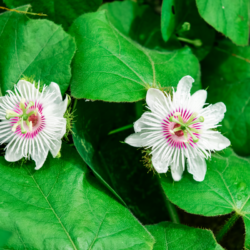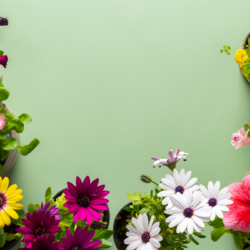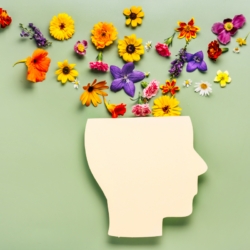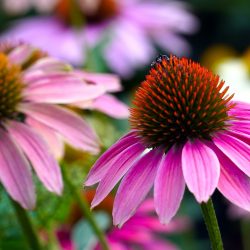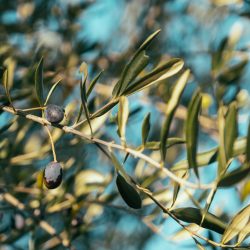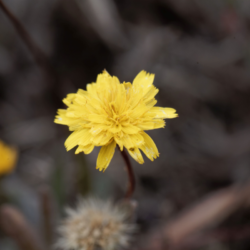Sleep, that essential restorative state, takes up almost a third of our lives. Yet many of us struggle every night to get a good night’s rest. In our search fora natural solution, we’ve come across the following herbal tea Sérénité Sommeil Herboristerie Iphyma combination of traditional plants designed to soothe sleep disorders. This article invites you to explore the benefits of this infusion, which combines the ancestral wisdom of herbal medicine with modern science.
What is Iphym Herbal Sleep Serenity herbal tea used for?
Developed by the Iphym laboratory, Sleep Serenity Infusion is much more than just an herbal tea. It’s a carefully crafted blend of medicinal plants, selected for their beneficial effects on sleep. This infusion aims to offer a natural alternative to people suffering from mild sleep disorders, such as difficulty in falling asleep, night-time awakenings or poorly restorative sleep. In a society where the use of chemical sleeping pills is commonplace, this infusion is a gentle, non-addictive option that respects your natural sleep rhythm.
Ingredients and their properties
Each component of Sleep Serenity Infusion has been chosen for its specific virtues:
- Lemon balm (30%): Appreciated for its sedative properties, lemon balm helps combat anxiety and irritability, promoting peaceful sleep. (1)(2)(3)
- Bitter Orange (30%): This component acts as a natural sedative, calming tension and making it easier to fall asleep. (4)(5)(6)
- Verbena (20%): Renowned for its relaxing effects, verbena helps relieve stress and anxiety.(7)(8)(9)
- Lavender (20%): Used for centuries in herbalism, lavender is known for its mild hypnotic qualities, helping to induce sleep.(10)(11)(12)
Each of these plants brings a crucial element to the formula, working in harmony to create a natural, restorative sleep experience.
Lemon balm (Melissa officinalis, 30%) :
- Sedative and Anti-Anxiety properties: Lemon balm is renowned for its calming and sedative effects. It is traditionally used to treat anxiety and central nervous system disorders. Modern pharmacological studies have validated these traditional uses, demonstrating that lemon balm can be a source of treatment for various disorders, including anxiety.
- Chemical composition: It mainly contains flavonoids, terpenoids, phenolic acids, tannins and essential oil, contributing to its diverse therapeutic profile.
- Various medicinal applications: Used since ancient times, lemon balm has applications in the treatment of gastrointestinal, cardiovascular, neurological and psychological disorders.
- Antioxidant and anti-inflammatory effects: Lemon balm is also known for its antioxidant properties, contributing to its therapeutic potential in a variety of medical conditions.
Bitter Orange (Citrus aurantium, 30%) :
- Sedative and anti-anxiety effects: Citrus aurantium has sedative, hypnotic and anti-anxiety effects. It is used in the treatment of anxiety, as well as for its potential in the management of various disorders, including certain cancers and gastrointestinal disorders.
- Efficacy and safety: Studies have evaluated the safety and efficacy of Citrus aurantium extract, particularly with regard to its effects on weight loss and cardiovascular side-effects.
Verbena (Verbena officinalis, 20%):
- Anticonvulsant and sedative activities: Verbena officinalis is used in traditional medicine to treat anxiety, depression, insomnia and various neurological and psychological disorders.
- Antidepressant effect: Aqueous extracts of Verbena officinalis in certain doses have demonstrated an antidepressant effect in animals, suggesting a potential application in the treatment of depression.
- Use in traditional medicine: Verbena officinalis is widely used in folk medicine in Europe, Western Asia and North Africa for a variety of ailments, including depression and inflammatory conditions.
Lavender (Lavandula angustifolia, 20%) :
- Therapeutic Properties: Lavender is known for its many therapeutic properties and biological activities, including anticonvulsant, anxiolytic, antioxidant, anti-inflammatory and antimicrobial.
- Medicinal use and properties: Lavender has long been used for its antioxidant, anti-inflammatory, sedative, antidepressant and antimicrobial properties, offering a wide range of therapeutic applications.
- Effectiveness in treating depression: Lavender has shown promising results in the treatment of depression, although further studies are needed to confirm these results.
Each of these plants plays a crucial role in the formulation of Sleep Serenity Infusion, working in harmony to provide a natural, restorative sleep experience.
Benefits of Sleep Serenity herbal tea
Unlike conventional sleeping pills, which can lead to dependency and impair sleep quality, Sleep Serenity Infusion offers a natural, gentle alternative. Its herbal ingredients work in synergy to facilitate deep, restful sleep, without the common side effects such as daytime drowsiness, dizziness or memory problems. By choosing this herbal tea, you’re opting for a healthier lifestyle, where sleep becomes a source of revitalisation rather than a daily challenge.
How does this soothing herbal tea work?
The effectiveness of Sleep Serenity Infusion is based on the combination and interaction of its ingredients. Lemon balm and bitter orange offer sedative properties, calming the mind and preparing the body for rest. Vervain and lavender help to reduce anxiety and tension, making it easier to fall asleep naturally and peacefully. Together, these plants form a holistic remedy that acts on the body and mind, promoting a healthy, undisturbed sleep cycle.
Use and dosage
To reap the full benefits of Sleep Serenity Infusion, we recommend that you drink it after your evening meal. Pour boiling water over the herbal blend and leave to infuse for 10 to 15 minutes. This infusion must be prepared just before use to guarantee the freshness and effectiveness of the ingredients. Strict adherence to this infusion method ensures that the product is as effective as possible.
Who can enjoy the benefits of this infusion?
Sleep Serenity Infusion is ideal for anyone looking for a natural approach to improving their sleep. It is particularly suitable for people suffering from mild sleep disorders, such as occasional insomnia, night-time nervousness, or those who find it difficult to relax before going to sleep. However, it may not be suitable for everyone, particularly pregnant or breast-feeding women, or people on specific medication. As with any natural treatment, prior consultation with a health professional is recommended to determine whether this infusion is suitable for your personal situation.
References:
- https://pubmed.ncbi.nlm.nih.gov/27167460/
- https://pubmed.ncbi.nlm.nih.gov/35730441/
- https://www.ncbi.nlm.nih.gov/pmc/articles/PMC9420213/
- https://www.ncbi.nlm.nih.gov/pmc/articles/PMC5954905/
- https://www.ncbi.nlm.nih.gov/pmc/articles/PMC8957651/
- https://www.ncbi.nlm.nih.gov/pmc/articles/PMC9572433/
- https://www.ncbi.nlm.nih.gov/pmc/articles/PMC9699298/
- https://www.ncbi.nlm.nih.gov/pmc/articles/PMC7253814/
- https://www.ncbi.nlm.nih.gov/pmc/articles/PMC5174135/
- https://www.ncbi.nlm.nih.gov/pmc/articles/PMC5878871/
- https://pubmed.ncbi.nlm.nih.gov/36615453/
- https://pubmed.ncbi.nlm.nih.gov/34420270/


